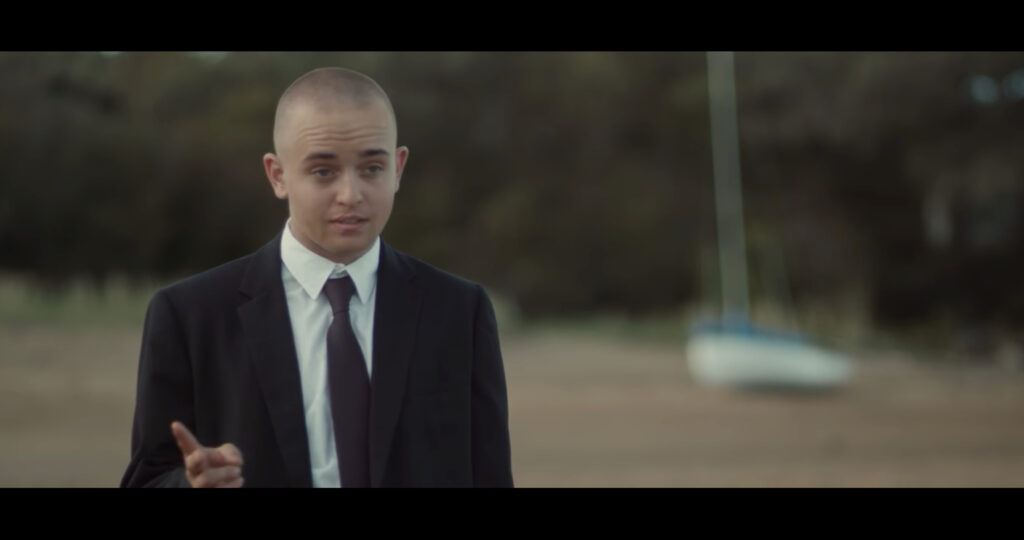Stage Mother, Splinters & Making Queer Films
“It’s very rare that I’ve directed somebody else’s writing but the truth is that I tend to really enjoy reading screenplays, whether they’re great or imperfect, I love getting caught up in the stories. Writing is very very solitary, but when you’re directing you never have a moment to yourself. Two hundred people lined up with questions at all time, and then editing is such a close collaboration with a small group of people so doing a job from beginning to end on a movie is a great balance but if I had to choose one, I don’t know that I would.”-Thom Fitzgerald on writing versus directing a screenplay.
Stage Mother is the upcoming comedy-drama film directed by Thom Fitzgerald and starring Jacki Weaver, Lucy Liu, and Adrian Grenier. The story follows a conservative church choir director who inherits a drag club in San Francisco started by her deceased son, from whom she was estranged after he came out as gay. During the mom’s quest to love him posthumously, she gets to know him better through the remnants of his life including his friends and falls in love with him once again.
While Stage Mother is still in production, to be released later this year, another of his queer-at-heart films, Splinters debuts on CBC this fall after having already premiered at TIFF who, only two decades earlier, awarded Thom’s one of Thom’s most provocative and poetic films, The Hanging Garden with Best Canadian Feature Film. In a recent interview with Thom, we spoke about his latest works and the rewards and challenges of making queer films in today’s saturated market.

Helkio: Where were you and what were you doing when you first read the script for Stage Mother?
Fitzgerald: [laughs] I was on the A train in Manhattan, when I read the script. It’s about a brother who had lost his son and it spoke very directly to me because I was in New York because my own brother had just died.
Since reading the script, is there a favourite memory you can share from the production?
I flew down to New York to have lunch with Jacki Weaver, to meet her, and to see if we might like each other, and might like to work together, and lunch turned into dinner which turned into drinks, which turned into a rather glorious weekend of fun in New York getting to know each other.
Do you think it’s any easier now to be a queer filmmaker than it was when you started out, have things shifted if at all?
Well, I’m trying to quantify what’s changed really, it’s not easy to do. I feel like perhaps the films are a lot less niche. The audience for queer content seems to have grown a lot with Drag Race and so at the same time, generally speaking, audiences have splintered and have got more fractured with all the different platforms and streaming. I can’t say that I’ve noticed the budgets going up [laughs]. Being an independent filmmaker is always a challenge, and I don’t think that’s changed at all.
What do you think the biggest challenge is for queer filmmakers or is there one?
When I started, and became of age, and started making movies in the 90s, they were queer in nature, so my first feature The Hanging Garden, was not marketed as an LGBT film, but the protagonist was very much a gay man. So I’ve never lived another life or career. I’ve never felt it affected my choices or opportunities, really, but, … how would I know?! [laughs]. How would I know if people weren’t open to hiring LGBT people, so I feel that I’ve always been able to pursue the things that I personally interested in. If I was overlooked for other things I wouldn’t know.
As a gay film director, what do you know now that you wish you had known when you just started out?
I guess that’s sort of what my answer was more about the quirks about my personality than about sexuality. I would say that the art-form is very collaborative and to extend trust as much as you can because it requires a lot of help to make something as enormous as a movie. I was a bit of a shy retiring younger person, I stayed in Nova Scotia my whole adult life so, get out of the house more. [laughs] That’s what I would tell my younger self. Look, someone gave me very good advice which was “don’t believe it when they tell you you’re a genius, otherwise, you’ll have a hard time believing it when they tell you you’re stupid”. [laughs].
Do you see a difference working in Canada versus the United States. Obviously, there’s more work in the US, but why are you in L.A. now, is it just because of the film?
Yes, there’s a feedback screen of Stage Mother on Friday, and so we’re tweaking the edit to get ready for that and hopefully, we’ll box the picture the middle of the week after that feedback screening. And then we can move onto the sound. In this case, this is an American movie although mostly Canadians made and it feels more like a Halifax-California production. [laughs] I don’t have jobs in Canada or the US. Mostly I’m preoccupied with my own work so I don’t know to compare, I’m not really a director for hire, but I shouldn’t say that then no one will hire me. [laughs]
What was the last movie you watched and what was the last screenplay you read?
Mortal Engine, it was about the city of London becoming a predator on wheels, going around decimating small European towns, it was beautiful.
I’m presently reading Shandi Mitchell’s The Waiting Hours. It was just published by Penguin and I’m a big fan of Shandi. I also just read a screenplay called Gnaw about a giant killer beaver on the loose in the Nova Scotia forest. I had a good laugh reading it.
Originally published in AutumnPlay Magazine, 2019
